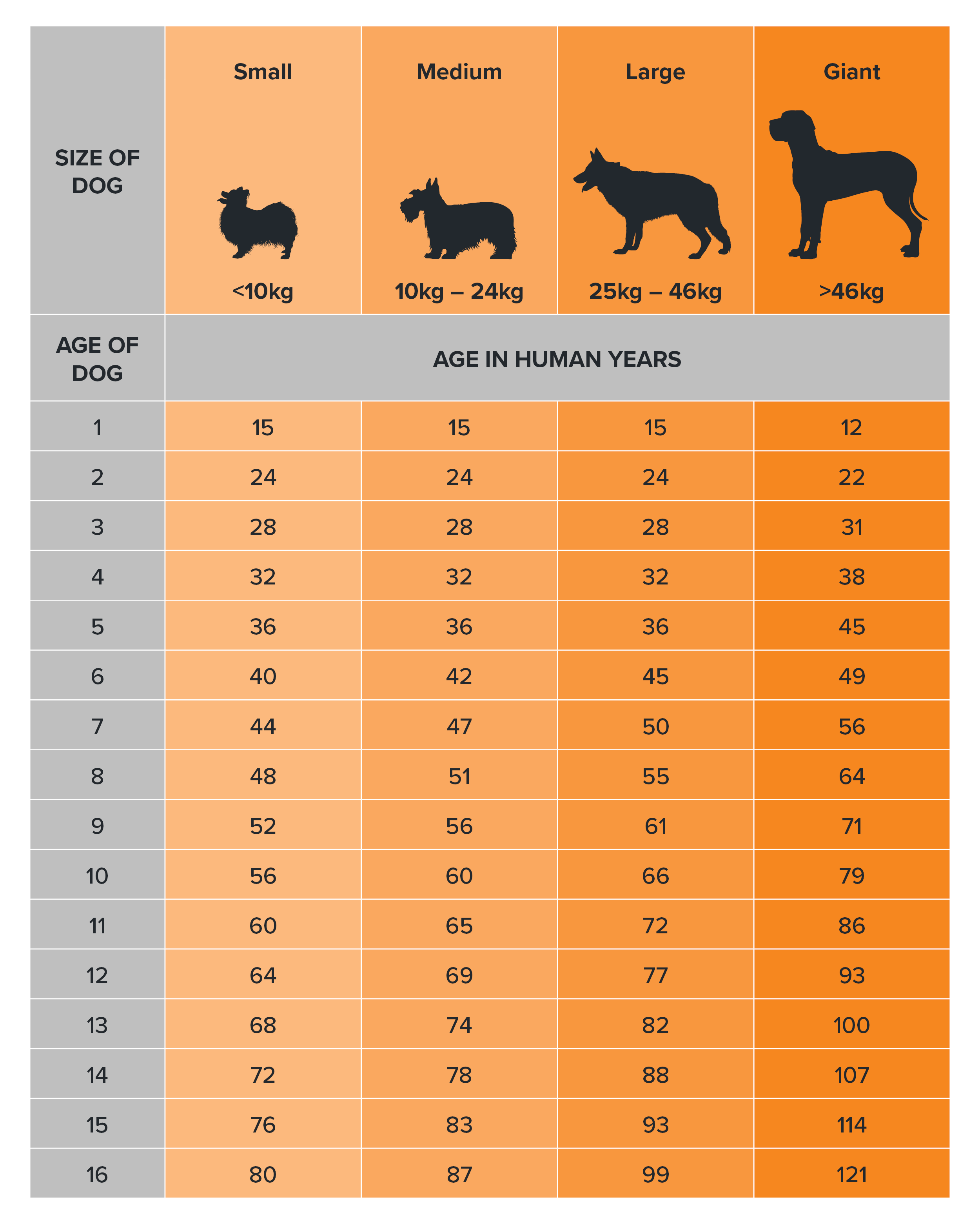For decades pet parents have followed the old rule that one dog year equals seven human years. While it’s a cute concept, it’s not scientifically accurate.
Understanding how dogs age can help you provide better care, and make more informed decisions about their health, including choosing the right pet insurance. After all, our four-legged companions have different needs at every life stage.
How to Calculate Dog Years Accurately
The traditional 1:7 ratio doesn’t take into account how dogs mature. For example, a one-year-old dog is more like a 15-year-old human when it comes to physical and emotional development. In reality, dogs age much faster in their first two years of life. Then the pace slows down, especially for smaller breeds.
How to calculate dog years more accurately:
- Year 1 = Roughly 15 human years
- Year 2 = Around 24 human years
- Each year after = Add 4 to 5 human years for small dogs, and 6 to 9 years for large or giant breeds.
This approach offers a more realistic view of your dog’s development and health needs.
Why Do Smaller Dogs Live Longer Than Larger Dogs?
Bigger dogs grow rapidly, which may accelerate the ageing process and lead to age-related illnesses earlier on. Research shows that for every extra 2 kilograms of body mass, a dog’s life expectancy drops by about a month. That’s why a Chihuahua might live 15 to 20 years, while a Great Dane might only live 7 to 10 years.
RELATED: HOW LONG DO CATS LIVE?
How Do Dogs Age? Stages of a Dog’s Life
Dogs, like humans, go through defined life stages. Each with specific health and lifestyle requirements:
Puppy (Birth to 7 months)
Rapid growth, high energy, and critical socialisation. Puppies need vaccines, training, and proper nutrition.
Junior (1 to 2 years)
Still maturing emotionally and physically. Adolescents may be more independent or distracted. This is a good time for behavioural training and spaying or neutering.
Adult (2 to 6 years)
Dogs are fully grown, with established personalities. Keep up with exercise, enrichment, and annual vet check-ups.
Mature (6 to 9 years)
You may notice a slight slowdown in activity. It's time to watch for early signs of joint issues or dental disease.
Senior (7+ years for small breeds, 5+ for large breeds)
Seniors may sleep more, be less active, and require a specialised diet or mobility aids.
Geriatric (12+, varies by breed)
Dogs in this final stage need regular health monitoring, gentle care, and sometimes assistance with daily activities.
RELATED: STIFF COMPETITION: WHAT IS THE BEST JOINT CARE FOR DOGS?
Dog Age Chart by Breed Size
Here’s a general reference for how dog years stack up by breed size:

How to Care for an Ageing Dog
Getting older isn’t easy, even for dogs. But with a little extra love and proactive care, senior dogs can enjoy their golden years comfortably.
Tips for caring for older dogs:
- Schedule more frequent vet visits (every 3 months is ideal)
- Adjust diet for joint, kidney, or digestive support
- Provide soft bedding and non-slip surfaces
- Keep walks shorter but regular
- Look out for changes in behaviour, appetite, or movement.
At dotsure.co.za, we know your dog is part of the family. Want to know how we can support your pet’s health journey? Contact us today to find the cover that fits your dog’s age, breed, and lifestyle.



